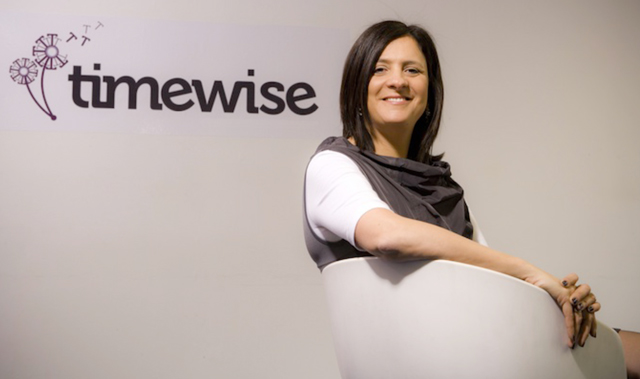Why Karen Mattison refused to be boxed in by inflexible work hours and how she gave thousands of household women their professional, part time careers back.
I grew up in Liverpool. Like many children, I was bought up to believe that ‘anything is possible, as long as you work hard enough for it’. This belief carried me to Oxford, helped me to find a job in the charity sector, where I felt I could make change happen in the world and has always given me strength and purpose.
However, when I had children, this core belief was shaken for the first time. I wanted to work in a CEO level job, as I had done before having kids, on a part time basis. But I couldn’t find such a role, anywhere. Every day, I’d meet other women at the school gates, in the exactly the same situation. They came from all kinds of backgrounds – lawyers, office managers, graphic designers – and we all felt backed into a corner.
Our choices were completely limited: work full time, don’t work at all, or find a flexible job but accept you’ll have to slide five rungs down the career ladder. One day I was struck by a thought – what business wouldn’t want to recruit from such an incredible pool of talent, and on a part time – and thus more affordable basis?
I teamed up with Emma Stewart and carried out research. We found that as many as half a million women in the UK feel ‘barred’ from working, because of the lack of good quality flexible and part time jobs, that are visible.
Changing a Sector
We are seen as radicals in the recruitment industry, because we don’t conform to type. Traditionally, a recruiter would focus on one kind of job, and find candidates that fit exactly that role. We refuse to be about ‘one kind of job’ or ‘one kind of industry’ because our social aim means we want to help as many people as possible, to find work they can fit with other commitments in life. Instead, ‘part time’ is our sector.
And it works – 40,000 people have flocked to our site, precisely because they want a source of good quality part time jobs. By consequence, we have an incredible range of candidates on our books, from all kinds of backgrounds and skill levels – meaning that employers know we are a ‘one stop shop’ where they can experienced candidates in abundance, for a whole variety of jobs. ‘Part time work’ had never been of commercial interest to traditional recruiters.
After all – part time, means part fee. For years, the way in which part time work has been undervalued, has meant that the good quality vacancies that are out there, have been locked away in the office drawer or shoved to the bottom of the pile.
This, in spite of the fact that there is enormous demand from skilled candidates for such jobs – and a reciprocal need from employers for experienced workers, who can work shorter hours. We saw this market failure, and the huge potential latent within it. Part time work needed a better status, and a visible market place where the businesses could find the candidates, and the candidates, the role.
Changemaking
When I first launched Timewise Jobs, I started to get email after email from incredibly senior people, working for some of Britain’s leading employers, to offer congratulations and their support for our idea. It really caught fire. Most would end with ‘I work part time (not that I make a big deal of it). This frustrated me, because for those 10 rungs down the career ladder there were no open role models of people working in part time jobs, which made it look like it ‘couldn’t be done’.
We investigated this further, and discovered that there is a real stigma attached to admitting you work part time. People fear it affects their status in the office, their chances of promotion, and the impression of how committed they are. Contrary to the stigma, further research revealed that 9 in 10 senior part time workers are incredibly successful. As such, we conducted a call for people to ‘role model’ themselves, tell their personal story and make themselves ambassadors for part time.
We have 50 such changemakers now and are looking to build more. To me, a changemaker is someone who won’t take ‘no’ for an answer, and will push on every closed door. A social entrepreneur can’t sleep at night, because they absolutely know they have the solution to something, and they have to do something about it. They don’t just ‘have ideas’ they act on them, obsess about them, and instill belief in others.
Conclusions
Because it affects at least half the population, it’s crucial we solve this, and not just for our generation but for all those to come. The UK workplace is changing, and the tired old world must catch up. At present, the recruitment industry is focused on helping one kind of person to find a job – someone who can work a minimum of 35 hrs/wk, uninterrupted, until retirement. People don’t live their lives like that.
Things happen, change comes to you and you are still the same person, with all the skills and experience that you had before. Why should you be written off from the market, just because you have something else crucial in your life that you need to fit work with? And why should employers be forced to miss out on your talent?
It makes sense – economically, socially and for business – to provide employment opportunities that allow them to work at the maximum of their potential, rather than just a tenth. The support of the Ashoka network has strengthened our business in every way. From opening doors, to spreading the work about what we do, to giving us a likeminded network of social entrepreneurs who we can trade and work with.




































